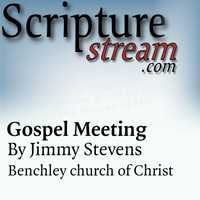- Introduction
- Judges 2:7-10 – Israel’s history.
- God’s law demanded passing on truth to following generations. Deuteronomy 11:18-28. The same applies to the church today.
- God’s arrangement for perpetuating the church.
- Philippians 1:1-2, 8-11 – saints, bishops, and deacons
- Acts 2:42 – sought strength
- Acts 8:1-5 – full of zeal
- The local church is only as strong as its members. Ephesians 4:11-18
- God’s image of an ideal church. Faithful and active Christians. Only from these come good elders, deacons, preachers, and spiritually strong women.
- Where do these Christians come from? One of the greatest sources – children. Ephesians 6:4.
- There is an urgent need for teaching in the Lord’s church today.
- Hosea 4:6; II Thessalonians 2:10-12
- There is a decline in Bible knowledge in the church as a whole. Few know how to defend their faith. Preachers are shallow and draw from human philosophies.
- God demands sound Bible knowledge. II Timothy 2:2; Acts 17:11
- When will the Bible be learned?
- Some, late in life, who often say, “If I had been taught as a child …”
- Consider the typical cycle of life that squeezes out opportunities for Bible teaching.
- Infancy and childhood
- “High maintenance.”
- “Besides, they are too young to learn.”
- Teenage years
- “Too busy.”
- “Stay home from worship for homework.”
- “Good grades mean a better job.”
- Now priorities are being set for adulthood.
- College of job, on their own
- “College studies take so much time.”
- “When I get married and settle down.”
- Marriage
- No Bible knowledge by now. Job, bills, children.
- “Once the kids are gone …”
- Suddenly, the child is 45 to 50 years old
- Already behind with no study habits.
- Learning is more difficult.
- Discourage from being behind.
- And what about his children?
- Now that child is old
- Knowledge is harder to gain and retain.
- “But don’t worry. There are younger, wise, active men and women who can work in the church.” Except for one problem: There was not enough time to teach the children to be able to do the work.
- Infancy and childhood
- The problem is not just lack of Bible knowledge. It is the effects of little knowledge.
- Tolerate things that lead to very serious sins: immodest dress and loose moral attitudes, dancing, social drinking, foul language, dishonesty. Then tolerate the “serious” sins: fornication, divorce, remarriage, adultery, homosexuality, drunkenness.
- Will your children be able to effectively defend themselves against drugs, vulgarity, cheating, lying, sex, and homosexuality with Bible teaching? Romans 12:2; I Peter 1:14-15
- How valuable are your children to you? Can you live with the thought that your children may not grow up to be faithful because you did not devote enough effort to teach them?
- It does not matter how many excuses parents come up with. The fact remains: untaught children will hurt the future of the church.
- No one wants to see the church degenerate.
- Ensuring a strong future for the church. Deuteronomy 6:2-9
- Love the truth yourself. Develop a library, skills, habits, and routines of study.
- Don’t assume your children don’t understand. Assume they do and set the right example!
- Set high goals for yourself and bring your children to those same goals.
-
- Conclusion - The future of the church depends on the diligence of the present generation. Pride in children’s development should first be in their ability to live a godly life rather than in being the best educated, wealthiest, most popular or most athletic. The future of the church can be bright if we make it so.
JS
October 17, 2018
For further study, see also:
Questions or comments? Join our Discord server for further study.
